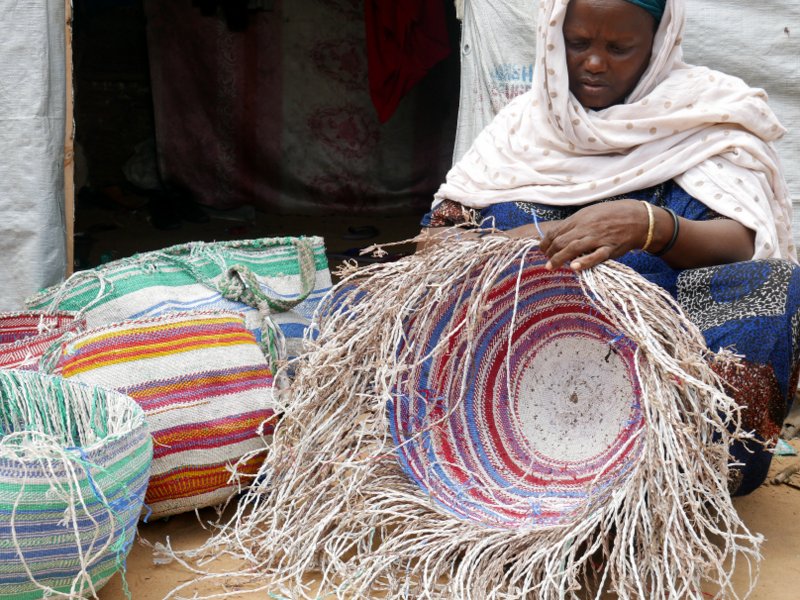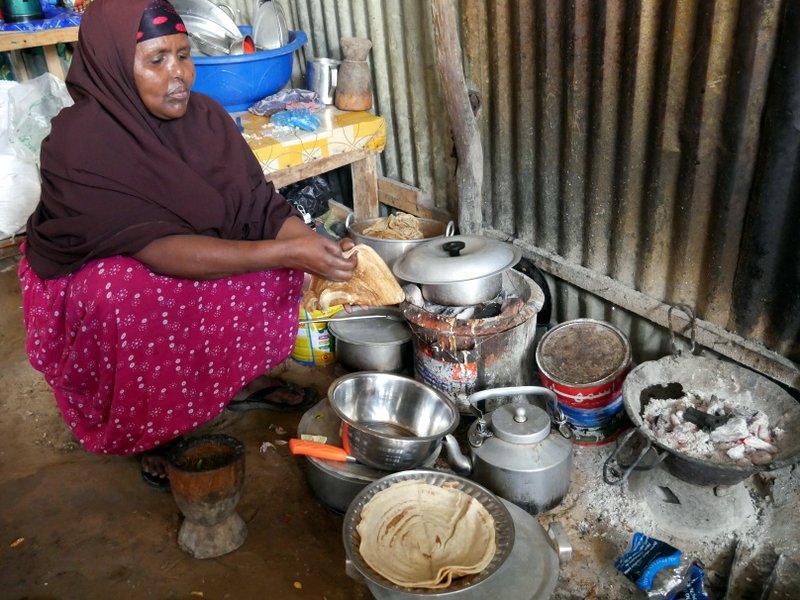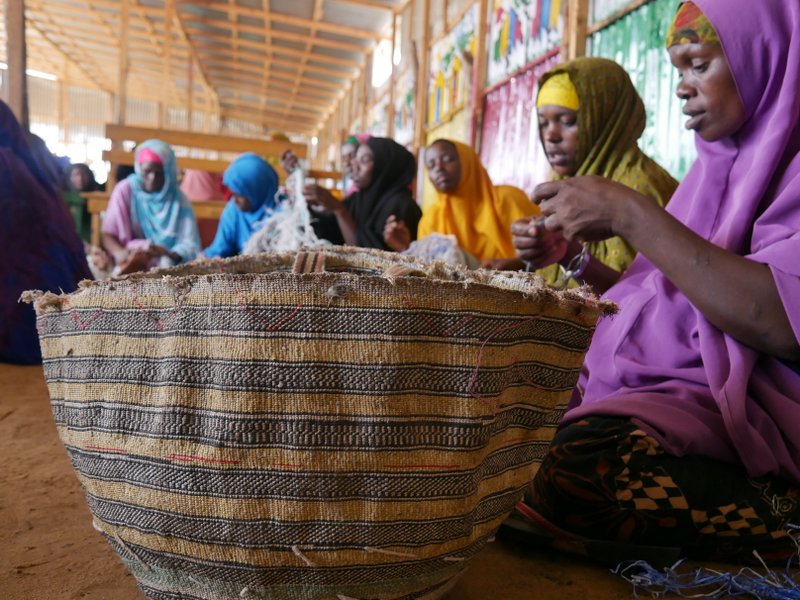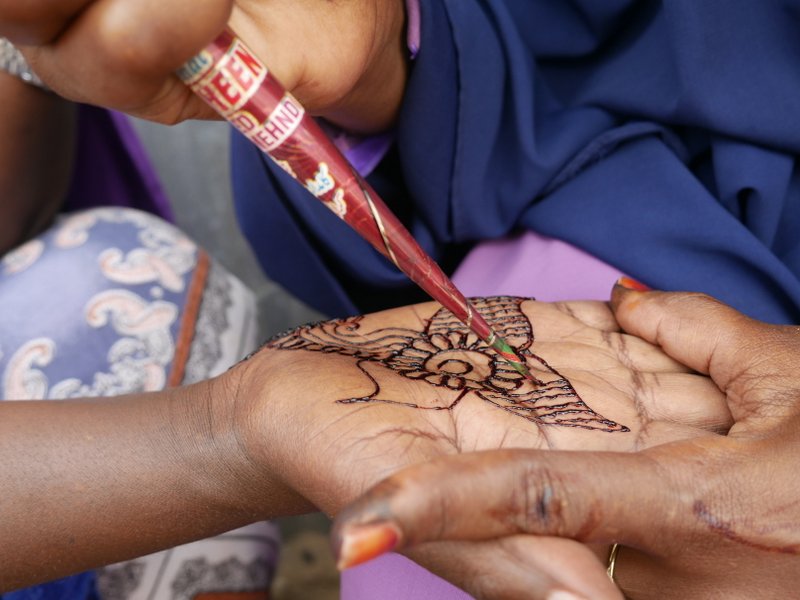For more than 4,000 people in the Somali capital Mogadishu, 2018 brought another challenge to an environment already marred by conflict and drought: eviction. Longstanding camps for internally displaced families were demolished, leaving some of the city’s most vulnerable residents homeless.
Many resettled in Kalkal centre, a camp that is now home to roughly 800 people on the outskirts of Mogadishu. To help vulnerable families restart their lives, the ICRC provided cash grants of $85 per household for three months. Among them were women entrepreneurs—most of them widows and single mothers—who, despite the myriad of challenges they faced, are carving out a living for themselves and their children.

Shamso Maalim, 38, is a camp leader at Kalkal centre, a camp that holds close to 800 displaced people. With the help of a committee formed by the residents, she oversees what goes on in the camp and finds ways to overcome challenges faced by people living there.©Anisa Hussein/ICRC

For Fatuma Ibrahim to get an income she moves from one house to the other selling clothes. In a day she is able to sell clothes worth $2 to $3 and this enables her to take care of her eight children. She also goes to the town center in Mogadishu to wash clothes to earn extra money. ©Anisa Hussein/ICRC

Women at work! A group of women twist and braid multiple strands together to form a strong and durable rope for sale. Once the ropes are ready, they are transported to the town centre where they are sold in bulk.©Anisa Hussein/ICRC

Muslimah Isse hand-weaves baskets to fulfill orders placed by her clients in Bakaraha, one of the largest markets in Mogadishu. It takes her about two weeks to finish one basket, which she sells for $30. “With the little I get I am able to buy food and medicine for my children,” she said. ©Anisa Hussein/ICRC

“I don’t go back to sleep after the Morning Prayer at 5:00 am,” said Basra Mohamed. Her business, a small cafeteria where she sells Canjera (Somali pancake) and tea, opens early for breakfast.©Anisa Hussein/ICRC



